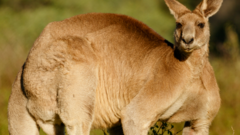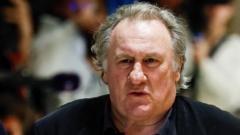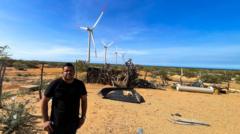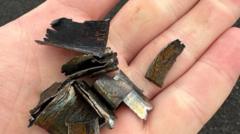After spending 20 years in prison for crimes she did not commit, Kathleen Folbigg is offered A$2 million in compensation, which her lawyer argues is grossly inadequate compared to the severity of her suffering and the historical context of similar cases.
Outcry Over 'Inadequate' Compensation for Wrongfully Imprisoned Mother
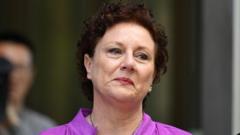
Outcry Over 'Inadequate' Compensation for Wrongfully Imprisoned Mother
Kathleen Folbigg, wrongfully jailed for the deaths of her babies, receives a proposed A$2 million payout, sparking outrage from legal experts who deem it insufficient.
In a recent development that has sparked considerable debate, the Australian government has offered Kathleen Folbigg a compensation package of A$2 million (£975,580, $1.3 million) for her wrongful imprisonment spanning two decades. Once labeled "Australia's worst mother," Folbigg's conviction for the deaths of her four infants in 2003 has since been overturned, with new scientific insights suggesting that her children might have succumbed to a rare genetic condition, not foul play.
Lawyers representing Folbigg have expressed outrage over what they deem a "profoundly unfair" compensation package, arguing it falls far short of what is just for the years lost. The case has been characterized by legal experts as one of Australia's most significant miscarriages of justice. Legal analysis anticipated that Folbigg could receive compensation well above A$10 million when considering her extensive ordeal compared to other wrongful conviction cases.
In a statement, New South Wales Attorney General Michael Daley emphasized that the decision was rooted in thorough evaluation, but details of the deliberations remain confidential at Folbigg's request. Ultimately, the offer has been described as "morally inadequate" by her attorney Rhanee Rego, who highlighted the precedent set by other exonerated individuals receiving significantly higher amounts.
Folbigg's saga initially began with the tragic deaths of her children—Caleb, Patrick, Sarah, and Laura—between 1989 and 1999. Initially convicted based on circumstantial evidence, including personal diaries, her trial painted a picture of a woman deemed unstable and prone to rage, ultimately leading to a substantial prison sentence.
In her defense has always been consistent: she asserts her innocence. A 2023 inquiry that scrutinized her case led to her release, uncovering the potential of natural causes behind her children’s deaths, attributed to rare genetic anomalies.
Comments from forensic experts suggest that the payout could be among the highest in Australian history. Some estimates indicate that Folbigg could ultimately receive up to A$20 million, reflecting the gravity of her wrongful imprisonment. Meanwhile, public sentiment continues to grow as Australians grapple with the implications of judicial failures and the case's underlying social injustices.










